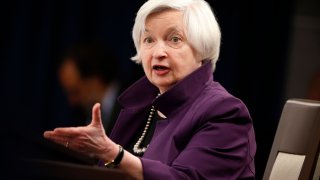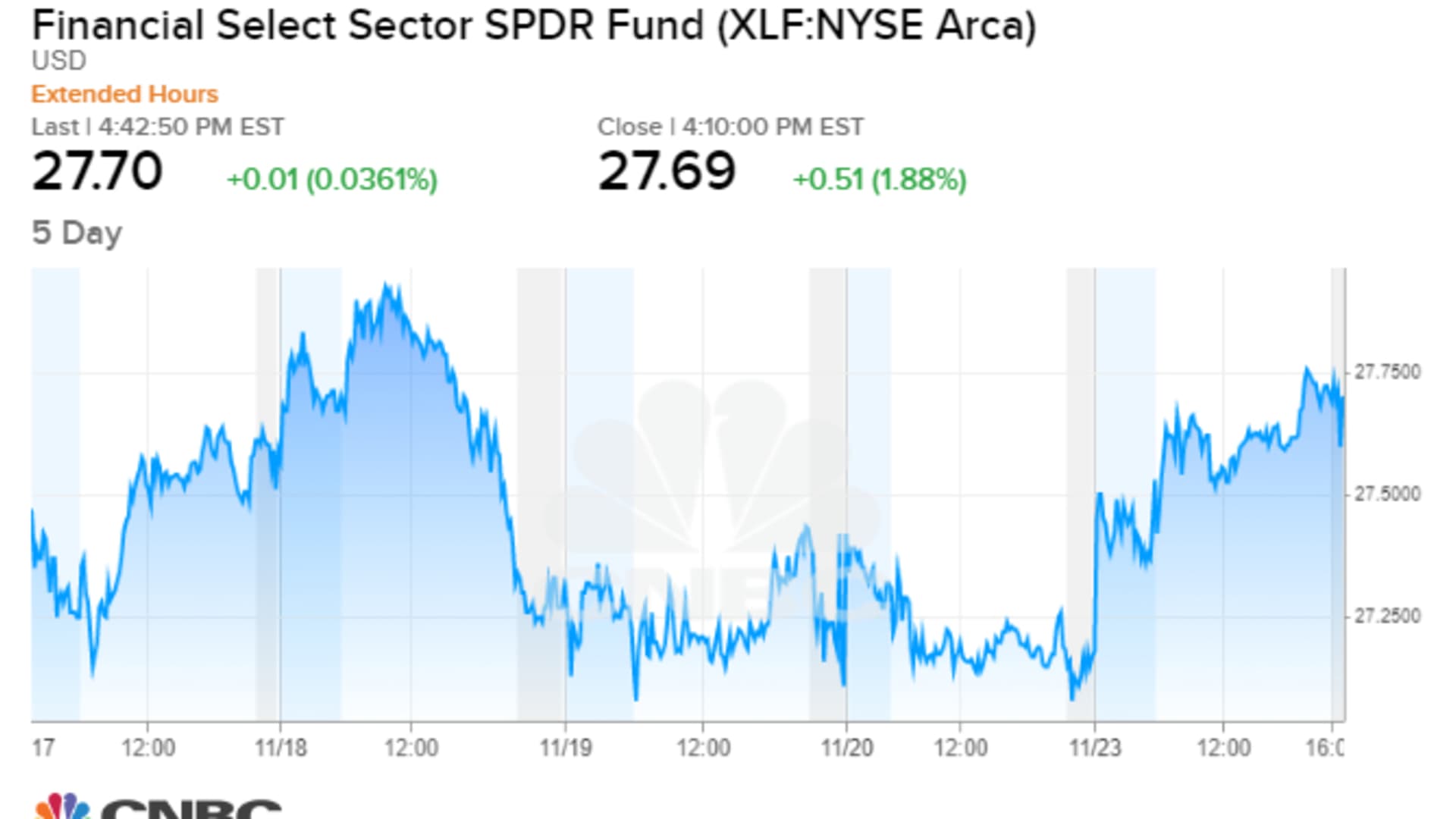
- Stocks rallied as news leaked out that President-elect Joe Biden has selected Janet Yellen as his Treasury Secretary.
- The former Federal Reserve chair is a widely respected economist who is expected to be pragmatic, focused on fixing the economy and not pursuing a new regulatory regime for banks that some on Wall Street have feared.
President-elect Joe Biden's choice of Janet Yellen as Treasury Secretary was seen as a win for markets, since the former Federal Reserve chair should focus on fixing the economy rather than the progressive Democratic agenda feared by some investors.
The first woman Fed chief would also be the first woman Treasury Secretary and faces unprecedented challenges of massive unemployment and a record level of debt, as the government spends even more to reverse the impact of the pandemic during the Biden administration.
"To me it shows Biden is taking stuff pretty seriously and definitely not pandering to the left. She's a very serious economic thinker, and they have some very serious problems to deal with," said Barry Knapp, director research for Ironsides Macroeconomics.
The stock market rallied and financial stocks moved to the highs of the day as news of her pending nomination leaked out. Sources familiar with the matter told CNBC Monday afternoon that the president-elect had chosen Yellen, who was believed to be under consideration along with Fed Governor Lael Brainard and former Fed Vice Chair Roger Ferguson.
"There's so many outcomes that could have been worse for the banking sector. For me that was the real risk of that Treasury secretary appointment was you could get someone that was hawkish on the banking sector," said Knapp. One market fear was that Biden could have nominated someone like Sen. Elizabeth Warren, D-Mass., who is outspoken about regulating banks.
"Yellen talked a lot about higher bank capital levels early in the [financial] crisis, but I think she's a pretty benign outcome for the banking sector. When we've had problems with that position in the past, in both Republican and Democratic administrations, it's been when there were people who didn't understand economics and taxes," Knapp said.

Ed Mills, Raymond James Washington policy analyst, said Yellen does have credentials that show she can be tough on enforcement. She conducted bank stress tests while on the Fed and took enforcement action against Wells Fargo.
Money Report
Yellen, a labor economist, will likely be a strong advocate for fiscal support, rather than someone seen as partisan. "So overall, if the result is less partisan, more focused on economic recovery, and someone the market is comfortable with — I would say that is a positive development for the market, but more importantly for the economy as a whole," Mills wrote.
Yellen served one term as Fed chair until President Donald Trump replaced her with Fed Chairman Jerome Powell.
Strategists expect the Treasury and Fed to work collaboratively, and some even suggest Yellen could be too cozy with her former Fed colleagues. But Knapp does not agree. "I don't think she has that kind of personality to meddle," said Knapp.
Strategists do expect Yellen to be sympathetic to the Fed and likely reverse Treasury Secretary Steven Mnuchin's decision to let Fed emergency program expire at the end of the year. Powell objected to the move.
"Even though the lending facilities weren't all being used, it didn't seem like it was very wise to let them expire," said Chris Rupkey, chief financial economist at MUFG Union Bank.
Knapp said the Fed and the Treasury will have to able to work closely together long into the future and this should bridge relations. "We have so much debt now there's going to be some level of coordination that didn't exist prior to this. I think she will be respectful of the Fed. Bottom line, it didn't matter who was sitting in that seat. You were going to end up with complicity between the Fed and Treasury," said Knapp.
He likened the debt level to be similar to the challenge facing the U.S. after World War II. "At the end of World War II, 70% of bank credit was invested in Treasury securities. It took 30 years for it to get to 20%," he said. The current deficit is over $3 trillion.
Rupkey said Yellen should do a good job, though the skill sets for the job are very different than those used at the Fed.
"The Federal Reserve is kind of an isolated position in a fortress down in Washington. You can spend a lot of time in your office but the Treasury Secretary is a very public position and political skills and savvy are needed, so it will be an interesting change," he said.
Rupkey said Yellen is also uniquely suited to deal with an economy facing such high unemployment. "She's the one who brought the issue of income inequality to the central bank," he said. "She does have some political skills. One of the things she started the Fed down the road to was more inclusiveness and income inequality. It started under her watch."
— With reporting by Yun Li






